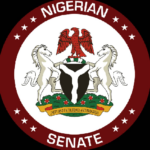Recently, the Federal Capital Territory (FCT) Police Command announced a ban on vehicles with tinted glasses and covered number plates in its bid to curb rising cases of criminal activities within the Abuja metropolis.
A statement by the Superintendent of Police Josephine Adeh, the command’s spokesperson, asked vehicle owners to comply with the directive or risk having their vehicles impounded by the police. The police spokesperson stated that “For now, the use of tinted glasses on vehicles is prohibited. If your vehicle has tinted glasses, kindly remove them to avoid having your vehicle impounded by the police.
“This is one of the measures implemented to combat the rising incidents of “one chance” and other criminal activities in the FCT”, she said.
This directive was reinforced by the newly appointed FCT Police Commissioner, Olatunji Disu, during a recent parade of suspected criminals caught in the FCT. Disu explained that the use of vehicles with tinted window glasses provides cover for criminals to operate undetected, thereby complicating efforts to rescue their victims.
“We are clamping down on all commercial vehicles and private cars with tinted glasses. We need to see people inside their vehicles. Tinted glasses contribute to lawlessness. Nobody has the right to tint their glasses or cover their number plates. These actions facilitate criminality, and we will not tolerate them,” he said.
Nigerians, no doubt, acknowledge the observation about the alarming rise of criminality in the FCT by the police. Indeed, for quite some time now, reports of various acts of criminal offences have been making the rounds raising concerns about the safety and security of residents of the FCT.
Hardly any day passes without reports of kidnapping, armed robbery, car snatching and break-ins, often resulting in fatalities. These criminal activities usually peak as we approach the end of the year when preparations are being made for the yuletide season. As this period involves heightened buying and selling, as well as travel arrangements, criminally-minded elements are on the prowl to operate on vulnerable and unsuspecting citizens, dispossessing them of their valuables, including cash.
A dangerous dimension to these criminal activities is the incidence of kidnapping for ransom perpetrated by organised criminals, complete with logistical and communication gadgets. A key element in these operations is the use of tinted vehicles, which, as the police rightly observed, obscures the view of law enforcement agents. The perpetrators of the crime find it convenient in using these vehicles to hide themselves and their victims, thereby evading detection and prevention of their activities. In some cases, such victims being conveyed in vehicles with tinted glasses are tortured, maimed and even killed as the vehicles move around.
We share the concern of the public and the police over these nefarious activities and support the actions taken to curb, if not stop them totally in the FCT.
While we wholeheartedly pledge our support for the intention and action being taken by the police on this, we are, however, concerned about the method and time frame given in the implementation of this measure.
In the first place, for a measure of this importance and potential impact on the residents of the FCT and indeed Nigeria as a whole, there was no adequate publicity on it. Between the time that the FCT police commissioner announced it and the commencement of the implementation, there was little time for preparation and compliance.
Another important factor glossed over is that not all vehicles with tinted glasses are registered or owned by people residing in the FCT. As the FCT is a very important hub of transportation, many vehicles with tinted glasses may just be passing through on their way to other destinations or just on a visit. To subject such vehicles that are out of the jurisdiction of the FCT to this measure is not justifiable.
The FCT police need to also implement this measure in an organised manner without inconveniencing other vehicles and the general public.
We note that in response to the outcry by the public, the FCT police have clarified that the measure does not extend to those vehicles that came with factory-fitted tinted glasses. This offers some measure of relief. Nevertheless, we support the House of Representatives in calling on the FCT Police Command to suspend the implementation, allowing for adequate pro-active measures, including public enlightenment and addressing some of the concerns raised by the public on the directive.
Beyond this, there is the need to make the whole concept have a national outlook for the safety of all Nigerians. The office of the Inspector General of Police (IGP), through state commands, should try and convince state governments to key into the initiative. There should also be a clearly defined policy on who should be allowed to use tinted glass in their vehicles. It should not be for everyone who can afford it because criminals can use that window to get and use same.

 Join Daily Trust WhatsApp Community For Quick Access To News and Happenings Around You.
Join Daily Trust WhatsApp Community For Quick Access To News and Happenings Around You.


